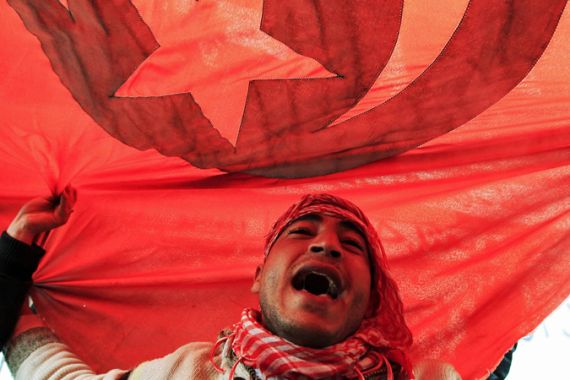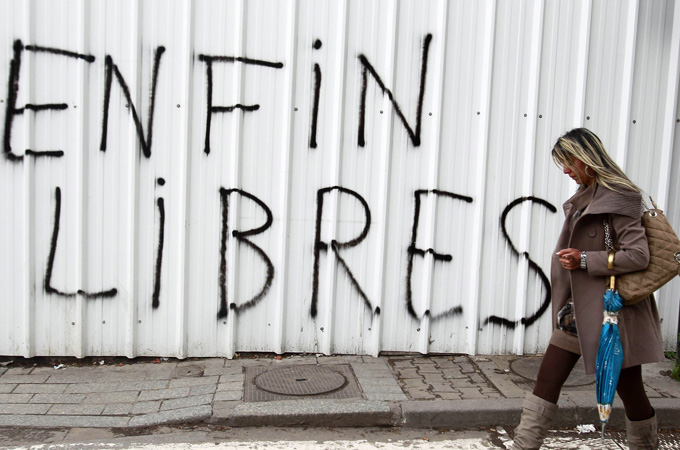Tunisia replaces regional governors
Interim government continues efforts to dismantle Ben Ali’s legacy while struggling to restore order and stability.

 |
| While ‘Finally Freedom’ grafitti cover Tunis, how the government will restore stability remains to be seen [Reuters] |
Tunisia has replaced all 24 regional governors as part of the efforts to dismantle the legacy of the ousted president, Zine El Abidine Ben Ali, according to official sources.
The country’s state news agency reported on Thursday that the interior ministry replaced several senior security officials this week, a first step to overhauling the network of police, security forces and spies built up by Ben Ali during 23 years of police rule.
The move is unlikely to satisfy those who want al-Nahda (Renaissance), an Islamist party banned under Ben Ali, to be reinstated as part of the power structure.
In a recent interview with Al Jazeera, Rachid Ghannouchi, al-Nadha’s leader, has said the interim government is not stable and that a true unity government would not exclude anyone.
Street protests have dried up in Tunisia in recent days after a reshuffle purged the interim government of most Ben Ali loyalists. However, many Tunisians have called for more officials to be replaced at the security and regional level.
Amid the political uncertainty, a Jewish leader has said a gang set fire to a small synagogue in what appeared to be the first attack on a Jewish institution since the start of the unrest that ousted Ben Ali.
Peres Trabelsi, who heads the Ghriba synagogue in Djerba, said on Tuesday a small synagogue in the southern town of El Hamma was set alight and a Torah burned.
In a telephone interview, Trabelsi said: “They want us to leave and sow discord between the Jewish and Muslim communities who have long lived in symbiosis.”
Trabelsi said that gangs also damaged four cars belonging to Jews in Djerba.
Ghriba was the target of a deadly “terrorist attack” in 2002 that left 21 people dead.
The report of the Djerba attack came as the head of a UN mission investigating last month’s uprising said that 147 people were killed and another 510 injured.
Bakr N’diaye, head of the UN Office of the High Commission on Human Rights, said the figure does not include 72 people who died in prison riots.
The interim government formed after Ben Ali fled the country on January 14 has said about 78 people lost their lives in the violence. But opposition members have insisted the death toll was much higher.